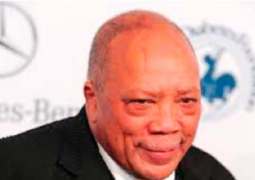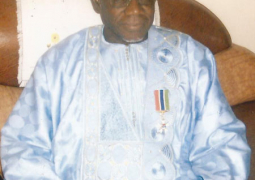After
a bruising end to an aggressive campaign, Africa’s choice to lead the UN World
Health Organization prevailed over Britain’s candidate David Nabarro at the
World Health Assembly in Geneva Tuesday.
The
vote was 133 for Ethiopia’s former health minister to 50 for Nabarro in a third
round, where each UN member state had one vote.
Africans
bear a disproportionate burden of global health problems, but no African has,
until now, led a major international health institution.
The
selection of the WHO Director-General was the most democratic and transparent
yet. Tedros Adhanom Ghebreyesus had near-solid support from Africa and
substantial backing in other regions, particularly among health professionals
who knew his record of accomplishments or who had worked with him on such
issues as increasing vaccination rates in poor countries.
There
will be analyses and critiques of the process and examination of the
last-minute charges and counter-charges among supporters of the final two
contenders. But, as hard-fought as the campaign was, the most difficult
challenges for Tedros lie ahead. He has vowed to transform a cumbersome
bureaucracy into a responsive, agile organization - one that responds to acute
crises while promoting the right to health care for every person everywhere.
Prior
to the election, there was a smear campaign similar to the one three months ago
which derailed the expected selection of Nigerian physician Dr. Muhammad Ali
Pate to head the Global Fund to Combat Aids, Tuberculosis and Malaria.
This
month last-minute attack on the candidacy of Tedros had raised questions about
whether wealthy western powers are prepared to accept African leadership of
global health institutions.
But
Tedros admirers in developed countries fought back. Ezekiel Emanuel, chair of
the department of medical ethics and health policy at the University of
Pennsylvania, defended him against what he called “terribly nasty” dirty
tricks. Former head of the US Centers for Disease Control and Prevention, Dr.
Tom Frieden, supported Tedros against charges that he had covered up an
epidemic in Ethiopia.
Nicole
Schiegg, a former senior advisor to USAID, the development agency, wrote that
he is the leader the World Health organization needs. Before the last-minute
attacks, British Conservative party politician Andrew Mitchell said Tedros was
the best candidate to help developing countries make health gains – and also to
protect the world against pandemics.
As
former health minister of Ethiopia, with experience in numerous global health
initiatives, Tedros won admiration for his strategic thinking, his management
abilities and his skill at bringing together diverse constituencies towards
achieving common health targets. His accomplishments in improving health and
saving lives in Ethiopia have been cited as models for gains that can be made,
even in difficult, low-resource settings.
“A
leader has the vision and conviction that a dream can be achieved. He inspires
the power and energy to get it done. ”
Ralph
Nader



